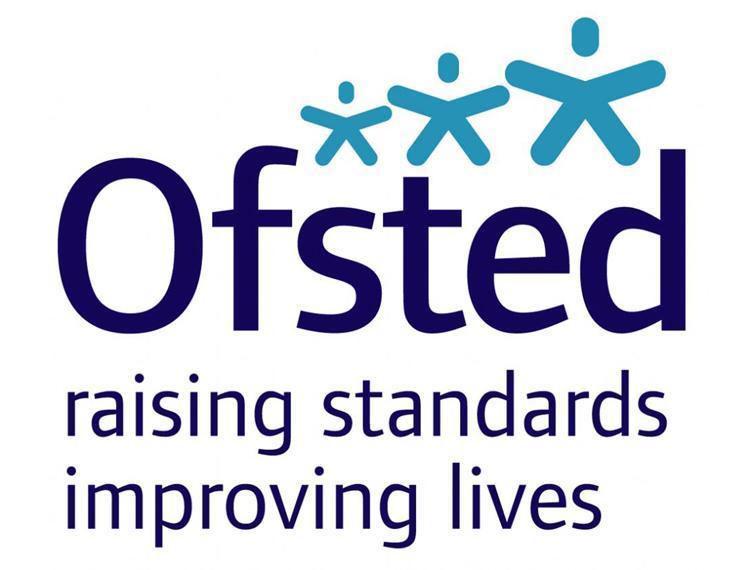Disclosure and Barring Service: guidance for children’s social care providers and managers

What Disclosure and Barring Service (DBS) checks you need to have in place and how Ofsted will check the use of the DBS checks and certificates on inspection.
Introduction
This guidance explains how Ofsted’s inspectors will evaluate how well providers and managers administer and use the Disclosure and Barring Service (DBS) checks and certificates.
The guidance covers these children’s social care services:
- adoption support agencies
- children’s homes, including secure children’s homes
- independent fostering agencies
- residential family centres
- residential holiday schemes for disabled children
- voluntary adoption agencies
- local authority adoption and fostering services (as a good practice guide)
DBS certificates provide information about a person’s criminal record history at a point in time and may contain information about their suitability to work with children.
Information in certificates must always be considered alongside other relevant information to determine a person’s suitability to work with children.
Get the right DBS check
Employers must understand whether the work a person carries out, or will carry out, makes them eligible for a DBS check and what level of DBS check to get.
There is an online tool available to help you find out which DBS check is right for your employee.
You must take account of changes to the legislative framework for DBS certificates so that you remain up to date with the requirements. The DBS will only provide enhanced checks for very specific roles. If any role is unlikely to include regulated activity, you must risk assess it to confirm that a standard check is appropriate.
Enhanced DBS checks for regulated activity
People who carry out regulated activity are eligible for an enhanced level of DBS check, with barring information. Ofsted expects that this level of check will be carried out on all individuals when necessary.
For more information on barring (barred list) please see DBS checks: detailed guidance.
Regulated activity
The definition of a regulated activity for these purposes is set out in the Safeguarding Vulnerable Groups Act 2006.
You should ensure that you keep up to date with what does and does not constitute regulated activity.
Employers should check what level of DBS check applies to positions in which the applicant will have contact with children. Employers should then carry out the appropriate level of check.
A provider commits an offence if it knowingly permits a person who is included on the children’s barred list to engage in regulated activity. Providers and managers must fully investigate any information that indicates that a person may be barred from working with children.
A person who is included in the children’s barred list commits an offence if they engage in regulated activity from which they are barred. This includes providing, or working in, a service listed at the beginning of this guidance.
What children’s social care providers and managers must do
If you need help with making sure you are complying with the law, you should speak to a legal adviser and/or the DBS.
The DBS advises providers or managers to have a policy that outlines how they will carry out, record and manage checks and certificates, and the circumstances when a further check may be requested.
Before you appoint a person to engage in regulated activity, you must review the information contained in an up-to-date DBS certificate and decide whether this reveals any concerns about the person’s suitability to work with children.
If the person subscribes to the DBS Update Service you must check the original DBS certificate.
If you have concerns, you must use the information to come to your conclusion whether to appoint the person.
When a member of staff or volunteer changes their role or the nature of their work, they may need a different level of DBS check in order to carry out that work. In these cases, you should seek a new check before they begin that work. For example, if the work of a member of the administration team changes to include working directly with children, the provider/manager must consider whether there is a change in DBS requirements.
Once appointed, a person must continue to meet the remit-specific regulatory requirements after the initial recruitment process. If concerns arise, you must gather enough information to decide whether to continue to engage the person. This may involve an additional DBS check.
Information that inspectors will need to see on inspection
Inspectors will consider how safely you manage DBS checks and certificates as part of their assessment of your recruitment and retention of anyone engaged to work at an establishment or for an agency. They may ask to see your DBS policy.
Evidence of robust safer recruitment practice includes proof that you have:
- required all applicants to provide evidence of any name changes from birth onwards
- made every effort to secure alternative confirmation the person is suitable when they are unable to get a DBS check where they have spent time overseas
- ensured that no one works with children without a DBS
- assessed and minimised any risk relating to any person who will start to work for you before their DBS check has been obtained
As a minimum, inspectors expect to see a record of:
- the date the check was carried out
- the DBS certificate number
- the name of the person who checked the original certificate
- whether there was any information or concerns arising from the check that required further attention before you decided to appoint the individual
- the name of the person who carried out the update check, if the individual is registered with the DBS update service, and proof that the original certificate has been checked
- if there were concerns once a person was appointed, how you have re-checked a person’s suitability to continue to work with children
- what actions you take if a person changes their role after they have been appointed
- the actions you have taken to protect children from contact with unsuitable persons; this may include referral to the DBS or other relevant authorities
Agency staff
You are responsible for ensuring that staff, including agency staff, who work in your setting are safely recruited and that appropriate checks are carried out. You must be able to show that you have checked that any member of staff from an agency meets the relevant recruitment regulatory requirements for the individual registered setting. This includes seeing a current DBS certificate for the person or the original certificate alongside the latest update from the DBS update service.
People who may not need a DBS check
Administrative and auxiliary staff
Administrative and auxiliary staff working for a residential holiday scheme for disabled children are not eligible for a standard DBS check. If their work falls within the definition of regulated activity, they will need an enhanced check.
Non-resident partners of foster carers
Ofsted expects all local authority fostering services and independent fostering agency providers and managers to ensure that children and young people who are fostered are safe in their foster homes.
Providers and managers must show that they have an effective policy to monitor foster carers’ relationships. They should guide foster carers on how to manage non-resident partners’ access and responsibilities for the children and young people they foster.
Deciding whether foster carers’ partners who do not live with them (‘non-resident partners of foster carers’) fall within the definition of regulated activity will depend on factors such as whether they have unsupervised time with children, when, and how often. If non-resident partners of foster carers ‘share the care of the child’ they should be fully assessed as foster carers and be subject to a DBS check.
Disclosure and Barring Service (DBS)
The DBS carries out the functions of the former Criminal Records Bureau (CRB) and the Independent Safeguarding Authority (ISA).
Its purpose is to provide information relating to a person’s offending history or other information that is relevant to an employer or relevant person, such as a volunteer manager. This is to prevent unsuitable people from working with vulnerable groups, including children.
You can find out more about the DBS on its website.
Regulation references
List of relevant regulations.
Adoption support agencies: Regulation 19 of The Adoption Support Agencies (England) and Adoption Agencies (Miscellaneous Amendments) Regulations 2005.
Children’s homes: Regulation 32 of The Children’s Homes (England) Regulations 2015.
Independent fostering agencies: Regulation 20 of The Fostering Services (England) Regulations 2011.
Residential family centres: Regulation 16 of The Residential Family Centres Regulations 2002.
Residential holiday schemes for disabled children: Regulation 22 of The Residential Holiday Schemes for Disabled Children (England) Regulations 2013.
Voluntary adoption agencies: Regulation 14 of The Voluntary Adoption Agencies and the Adoption Agencies (Miscellaneous Amendments) Regulations 2003.
Published 29 August 2019
Last updated 28 October 2020 + show all updates
-
Updates to the guidance include: that the provider should risk assess roles to ensure that a standard is appropriate; that original DBS certificates should be checked where applicants are on the DBS Update Service; and that non-resident partners of foster carers may be subject to a DBS check. Examples of robust safer recruitment practice are also provided.
-
First published.












Responses